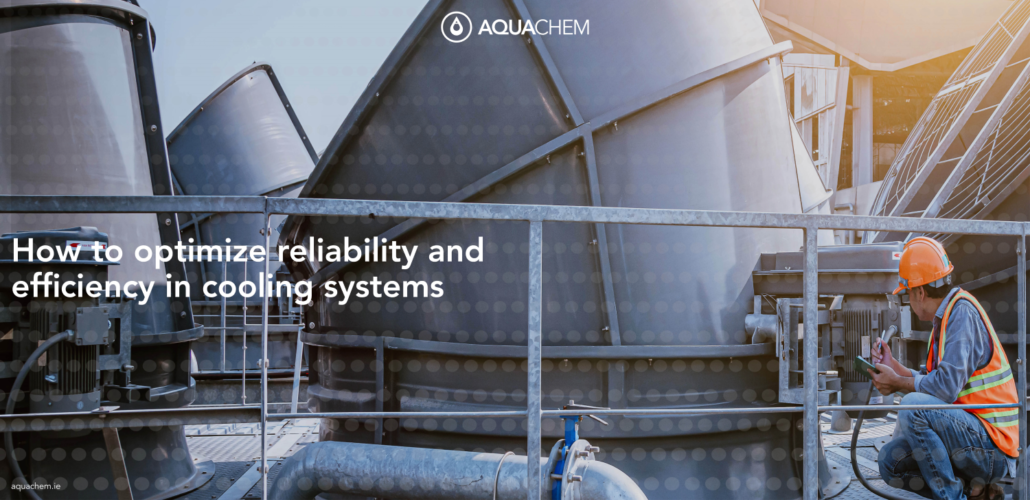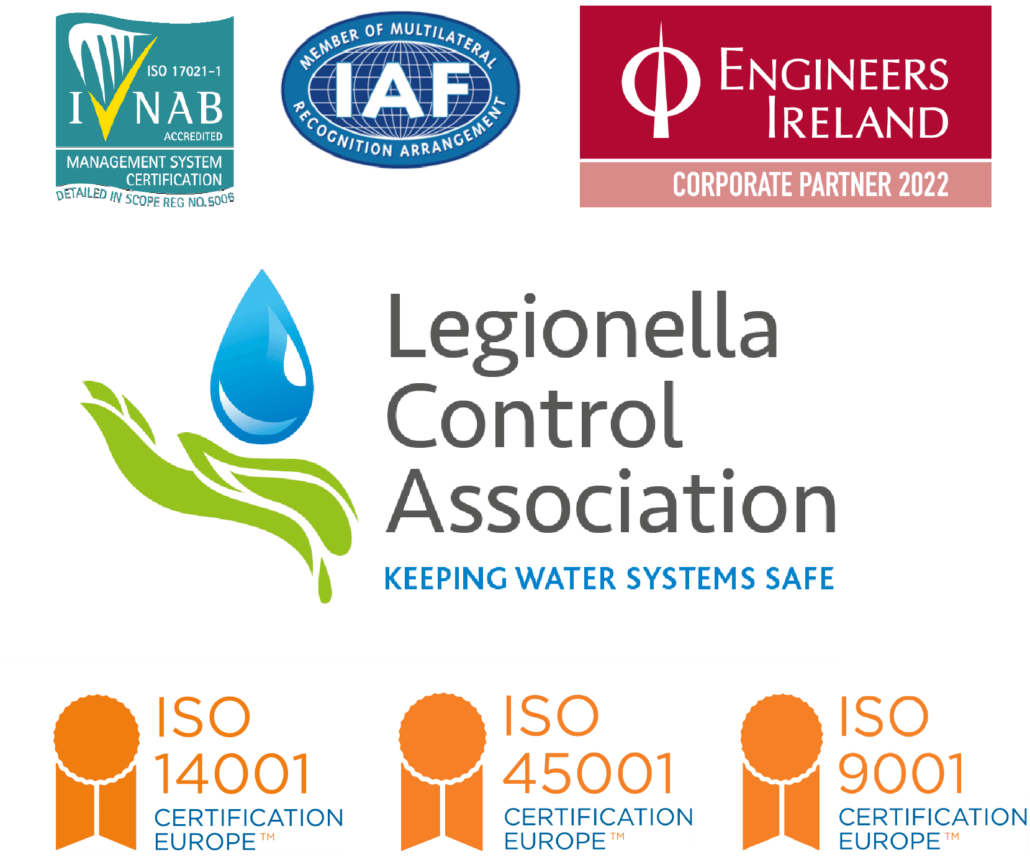Efficiency comes from the optimal usage of energy, while reliability is a result of minimal breaks and corresponding downtime, and all aspects of industry rely on systems which are both efficient and reliable; especially cooling systems.
Effective water management is dependent on the ability to optimize cooling tower operations as they and the associated condenser loop of chillers, represent major components of the total water footprint on site. Failure to effectively maintain this system may lead to excessive cost or water consumption and in a worst-case scenario, could ultimately lead to a factory shutdown.
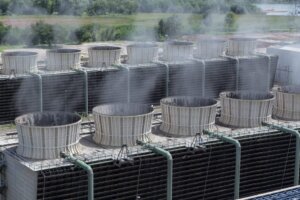
What can be done to optimize cooling tower operation?
During the cooling process, a number of problems can result from materials that are incompatible with the untreated water, or the chemicals used to treat the raw water. It is important that these issues are kept to a minimum to ensure your system is running as efficiently as possible.
To help understand your system and bring it to a stable operating condition that will minimize changes or decisions needed during day-to-day operation, you need to ask yourself the following questions:
- Is my make-up water the best water that I can get?
- If not, do I have a plan how I will get the right make-up water?
- Do I have chemical treatment that suits my system and site?
- Do I have clear change management process to ensure right decisions?
- Do I have the right process and equipment to monitor the system?
- Do I want to increase my system reliability and reduce the risk and operation cost?
By answering these questions you get a better understanding of what’s missing and how you can optimize cooling tower operation.
While condenser loops are well-known systems, there are newer, more innovative technologies that can help increase the reliability of your cooling tower system while reducing the risks and operation cost of your system – make sure you are up to date with newer methods out there.
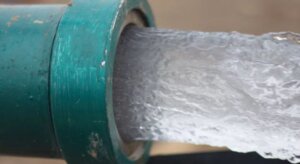
Issues that Influence Efficiency and Reliability?
Make-up water quality
Critical quality parameters include concentrations of calcium, alkalinity, chloride, and silica. These parameters have direct effect on corrosion and scaling control, chemical treatment consumption, and amount of blowdown flow needed.
Corrosion Management (internal & external)
Three factors influence the corrosion rate within a cooling tower and condenser loop:
- Biological Fouling
- Scaling
- Blowdown Rate
Biological Fouling and Scaling are naturally occurring and are controlled by using chemicals. Controlling parameters like calcium in the condenser loop is critical as this will not be evaporated, and if left untreated will be concentrated within the cooling tower. The only way to reduce them is to send them to blowdown.
Internal Corrosion
When internal corrosion occurs, it can be either general or localized. Both general and localized corrosion can have negative effects on efficiency and costs even before the need for replacement is realized. Specifically, corrosion can:
- Decrease the pressure rating as the pipe’s walls thin
- Diminish the flow rate, creating more demand from the pumps that cycle the water into the cooling systems
- Increase downtime and lost opportunity cost due to repairs. Cooling water systems are required by other systems in the plant to run efficiently, meaning entire sections of the plant may need to shut down during a cooling system repair
- Increase installed cost, which includes the new material, skilled laborers, and time required for new installations.
- Contaminate the fluid as corroded pieces deposit into the flow
External Corrosion
When cooling loops are installed underground or outside, external corrosion must also be considered. Considerations for material selection with underground installations include:
- Corrosion resistance, specifically with how compatible the piping material is with the soil
- Impact strength, considering the weight that will be placed on the material
- Installation or joining methods, and how they decrease the pressure rating and influence the three properties mentioned above when joined
- Abrasion resistance
Environmental compliance considerations
Today’s regulations become stricter with respect to compliance requirements. Cooling towers can be a major contributor of parameters such as organic carbon, and nitrogen while chemical treatment can also impact inorganic parameters (e.g., metals). Having better control on the chemical injection and system management to reduce blowdown and added chemicals can reduce not only the cost of the chemicals, but also the impact on environmental compliance.
Water Reuse Strategy
Using reclaim water, you can lower your freshwater demand and reduce the cost of purchasing water. While this action can lead to better condenser loop management, it can also lead to increased risks to your system at the same time. The risk is driven by the fact that overall site water balance is shifted towards increasing concentration of the chemistry in the outfall, adding pressure for environmental compliance, often defined in the units of concentration.
Scaling
As water passes through cooling lines, the process and fluid can cause scaling, 2 of the main scaling factors are pH levels (alkalinity / acidity) and the temperature.
When raw water is used for cooling water, the likelihood of scaling increases because common scaling agents are often present in untreated water, including:
- Calcium carbonate
- Calcium phosphate
- Magnesium silica
- Silica
The greater the scaling the narrower the pipe diameter becomes. This puts excess demands on the system, requiring more energy from the pumps to continue processing through at a consistent rate, increasing costs.
Also, the volume of water flowing per minute can only absorb a certain amount of heat. If scaling reduces that flow, it limits heat transfer, and thus system efficiency.
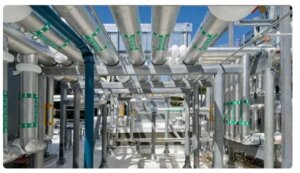
Conclusion
When a building cooling system cannot efficiently remove heat, it will cost the building and business costs of excess water, wastewater and energy.
It is in your best interests to ensure your system is operating as efficiently as possible, if you want to find out how your water system is operating get in touch with your experienced engineers today. +353 18 252 775 info@aquachem.ie


